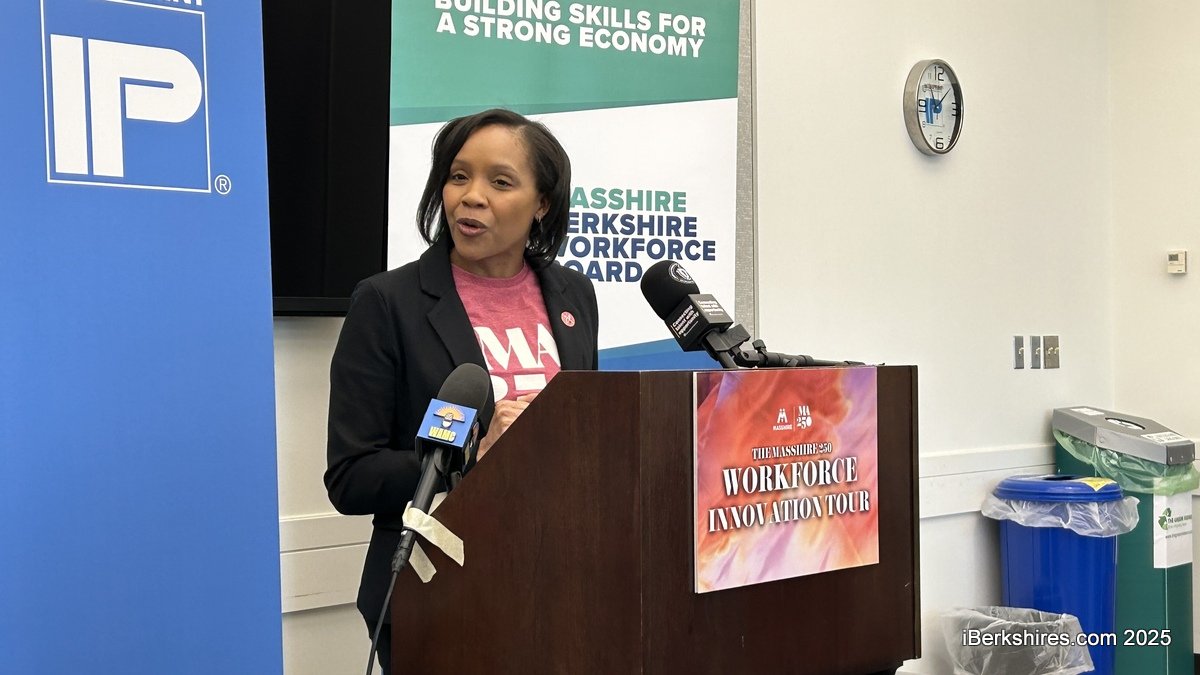Pittsfield Industrialists Oppose Vocational Program Cuts
 |
PITTSFIELD, Mass. — Numerous local business owners and trade professionals from the metal fabrication and automotive industries spoke out Wednesday against elimination of such programs currently being weighed by the School Committee.
The committee heard input from nearly 20 concerned parties as it looks to issue decisions on what type of vocational offerings to include in the emerging plan for a new Taconic High School facility. A determination by the committee is sought as part of a course selection review by the School Building Needs Commission, following a study on Taconic's curriculum by the New England School Development Council, which suggested a reduced demand for both metal fabrication and auto body vocational training.
Peter Dus, owner of B&P Supply, pointed out that Taconic High School is the only school in Berkshire County that offers an auto body program, and that keeping it open was crucial to supporting the needs of local employers. Dus presented the committee with a petition in support of keeping the auto body program, which had garnered 803 signatures in just a week from area businesses and residents.
"Both of these fields are trades that are not going away, they're nothing that can be outsourced," said Dus, "We need these skill sets in our graduates."
"I ask the committee to support the metal fabrication and auto body programs at Taconic," said Christopher Light, President of Armored Solutions. "As we strive to move Pittsfield forward, we should look to enhance our vocational programs, not eliminate them."
"We need the ability to hire sheet metal workers, and I'm just wondering where they're going to come from if we don't have a good sheet metal program at Taconic High School," said John Pariseau, owner of Pariseau Heating & Cooling. "I think it's important that the program not only be kept, but enhanced."
Auto body professionals, including Matthew Clark, manager of Haddad Collision Center, and Rick Gregory of H&S Auto, indicated that a majority of their current staff are graduates of the Taconic vocational program.
"If we do away with these programs, who's going to be around in 20 years to repair your cars, or my car?" asked Clark.
Carolyn Valli, executive director, echoed the importance of these areas in creating "living wage" jobs, and further suggested that the thinking around these programs needed reform. "I would ask that we start framing the vocational program as opportunities for success, as opposed to being seen as a dumping ground for troubled youth."
"I've been fighting this report since if first came out," said School Committee member Terry Kinnas, who vocally opposed the proposed removal of these programs. "The entire NESDEC missed the whole metal fabrication industry in Pittsfield."
Kinnas listed more than 1,000 current jobs in Pittsfield between these two areas, with salaries ranging from $200 to $2,000 a week, which he said are crucial employment options given that only 23 percent of all public high school students will graduate from a college. "Most of the kids who are in the vocational areas, trade areas, are making as much or more than most of the college grads today, and they don't have any college loans to worry about."
Kinnas said the committee needed to take a closer look at the economic impact of these programs on the community than it has been doing.
"Your vocational area as important or more important than your AP programs, for economic development," he said. "I don't know what has happened in the last 10 years of the school committee."
Removal of some existing programs, however, would make room for additional vocational learning areas that have not before been offered in Pittsfield, in emerging areas of electronics and information support systems.
"These are very difficult decisions," said committee member Kathleen Amuso. "We only have room for so many programs, we want to make sure we select the right programs. We are looking to eliminate some of our programs, but we are also looking to add programs that might strengthen our vocational program."
The committee will vote on the issue at its next meeting, on Wednesday, Dec. 12, following more deliberation and additional opportunity for public input.
"Anybody that's in the community has the opportunity to come on that date as well," said Chairman Alfred “Alf” Barbalunga. "I'm pretty confident this committee is going to be researching this up until that time."
Tags: automotive, Taconic High, vocational program,
















